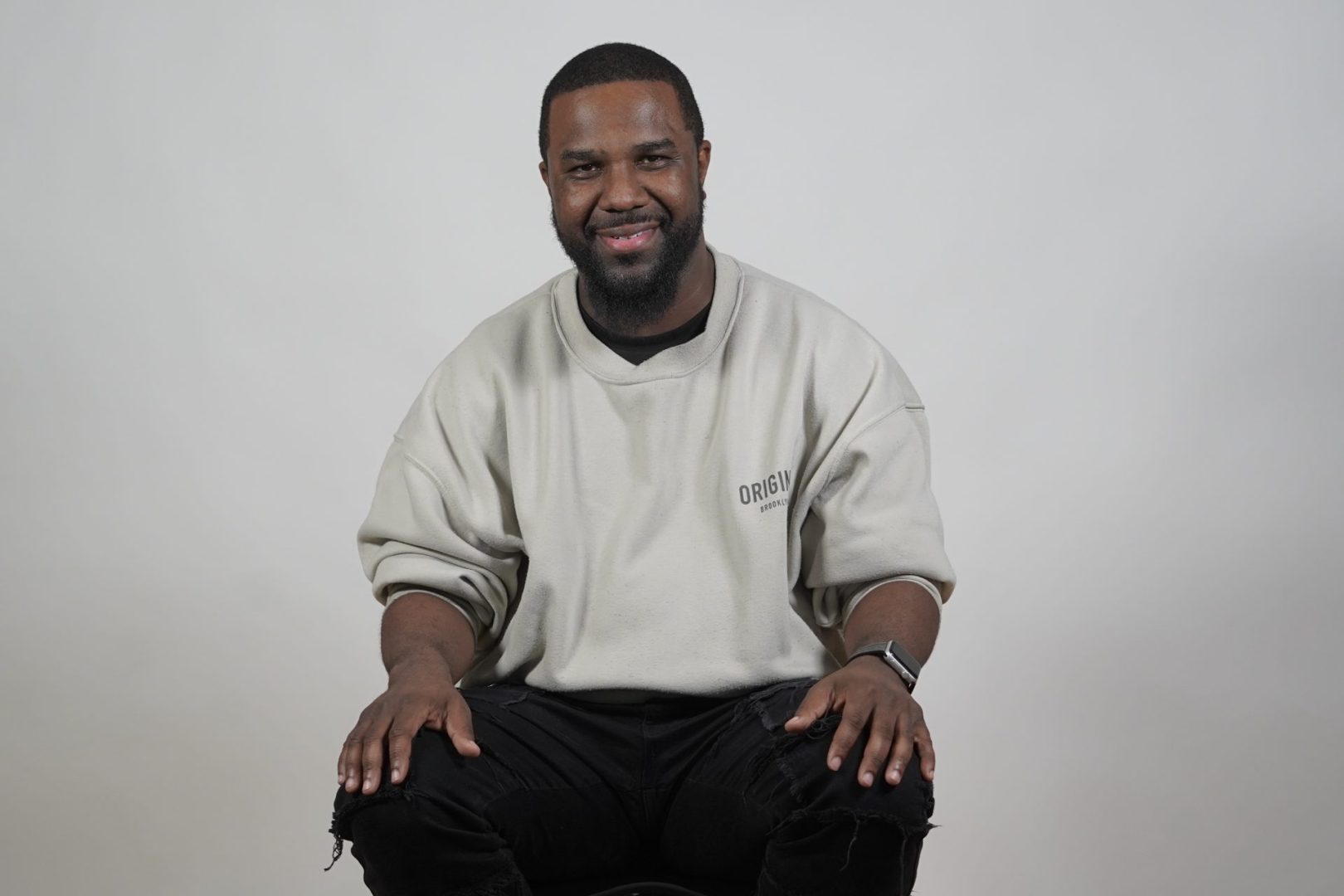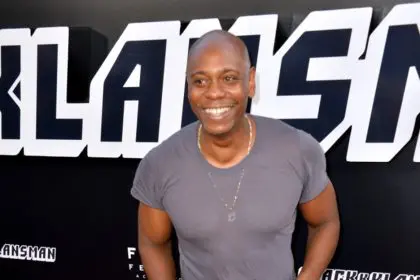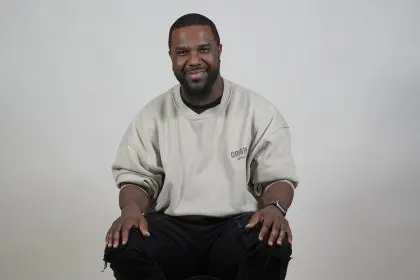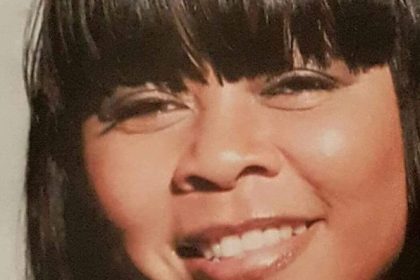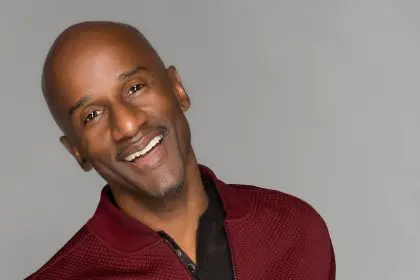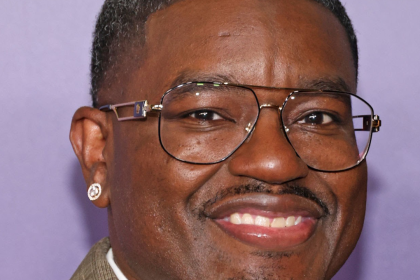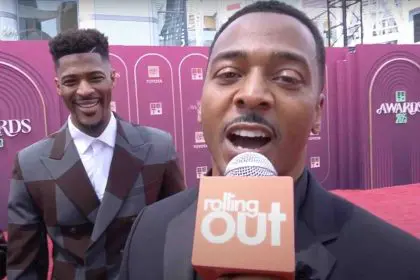In the pantheon of Chicago comedy, a city that has birthed legends like Bernie Mac, Robin Harris, and Sherri Shepherd, Jeremiah Frazier known better as FrayWay stands as both inheritor and innovator. With nearly two decades in comedy, plus years of formal theater training that preceded his stand-up career, Frazier represents the intersection of natural talent and rigorous craft that defines Chicago’s distinctive comedic voice.
“Chicago gonna let you know if you supposed to be on stage or not,” Frazier explains from the outset of our conversation. “We have some of the best crowds. Energy wise, with expectation they expect for you to put on a show.”
From Dean to Comedy Dream
Before becoming FrayWay, Frazier worked as a dean in the Chicago Public Schools system. His stage name emerged organically from this previous life.
“My coworkers used to call me Fray, which is half of my last name,” he recalls. “I said, you know what? All my life I’ve been doing things everybody else’s way, we’re gonna start doing it the FrayWay.”
This transition from education to entertainment wasn’t the radical shift it might appear. Frazier, who holds a B.A. in Theater from Columbia College, has been performing since childhood, playing roles like Willy Wonka and the Lion in “The Wizard of Oz.” Those early experiences gave him a foundation that many comedians lack.
“I didn’t start comedy, I didn’t start talking publicly on stage when I became a standup comic 18 years ago,” he notes. “I had always been on stage. So it wasn’t a thing for me to talk to people.”
This extensive background helped Frazier avoid what he considers comedy’s greatest embarrassment, bombing. While he acknowledges having performed for less energetic crowds, he credits his theater training with preparing him for audiences of any temperament.
Chicago’s Comedy Legacy
What distinguishes Chicago’s comedy scene is both its pedigree and its standards. Frazier rattles off names: Leon Rogers, Damon Williams, George Willborn, Marlon Mitchell with reverence, acknowledging how their pioneering work made his path possible.
“They’ve done all the hard work, because they had to construct and navigate through a lot of things that us behind them didn’t have to,” he reflects. “And because of that, I feel like all of us are better comedians because of them.”
The city’s comedy community holds performers to exacting standards. Popularity without polish won’t cut it in Chicago, where authenticity and craftsmanship reign supreme.
“We got some dogs,” Frazier says proudly of Chicago’s comedy talent. “Lil’ Rel, Deon Cole, Corey Holcomb, that’s all Chicago, Adele Givens. Man, we got women too. Powerhouses, you know, Just Nēsh’s, Correy Bell’s.”
This legacy creates responsibility. As Frazier puts it, “Now it’s our job, we’re going to give it to the next generation of comedians.”
The Gift and the Grind
Comedy, in Frazier’s estimation, represents equal parts natural talent and relentless work ethic. His Columbia College professors recognized his innate abilities but refused to let them substitute for discipline.
“They didn’t allow my natural gift to get me ahead of the class,” he remembers. “They actually taught me the grind of working and character analysis and getting all the way 100% locked in and not relying just on my God-given talent.”
This discipline extended beyond performance. Columbia required students to master technical aspects of production: lighting, sound, stage management before stepping into the spotlight.
“We had to understand the artistry of it, the dynamics of the show,” Frazier says. “It helped me appreciate everybody instead of feeling like, oh, I’m just a star because you have a star role.”
This comprehensive education informs Frazier’s perspective on the business of comedy, which he describes as “10% show and 90% business.” Independent comedians must function as their own managers, publicists, contract negotiators, and drivers: a reality that many aspiring performers don’t anticipate.
The Problem with Popularity
One of Frazier’s most pointed observations concerns today’s social media driven comedy landscape, where viral fame often precedes artistic development.
“A lot of people bomb today because people become popular before they become polished,” he argues. “We have a lot of popularity going on because these producers and show organizers want to sell tickets. And if you got a million followers, they know you can fill the seats.”
This inverted path to success, fame first and skills later, creates painful public spectacles when underdeveloped talents face demanding audiences.
“Last thing you want to do is be booed in front of 10,000, 20,000 people,” Frazier warns. “Get all your bombing out in these small lounges with 50 people in there.”
He contrasts this with the traditional comedy apprenticeship, where performers would “go room to room to room” working out material before larger showcases.
“What they was doing was making sure that they was getting all the bombs out.”
The Future of FrayWay
Looking ahead, Frazier envisions creating a new sketch comedy program that showcases multi-talented performers like himself. He cites “In Living Color” as inspiration, a show that revealed Jamie Foxx’s abilities not just as a comedian but as an actor, singer, and musician.
“I wanna build a platform to show the variety of artists more as to what we just want them to be, or see them as in one aspect,” he explains.
Beyond personal ambition, Frazier expresses concern about preserving comedy’s artistic integrity amid changing entertainment landscapes.
“We’re gonna lose validity in artistry if we don’t get back to understanding the roots of what real comedy is, what real writing is, what reading is,” he cautions.
For aspiring comedians, particularly those in Chicago, Frazier offers straightforward advice: “Don’t ever let somebody tell you what you can’t do.”
He distinguishes between affirmation, the encouragement that comes from audience appreciation, and validation, which he suggests should come primarily from within.
“Your ultimate validation is going to come from the residuals you receive through your gifts,” he says. “That rent paid every month. That mortgage paid every month. That validates me.”
It’s a philosophy befitting Chicago’s comedy tradition, a blend of creative passion, professional pragmatism, and unapologetic authenticity, or as Frazier might put it, that’s just the FrayWay.

